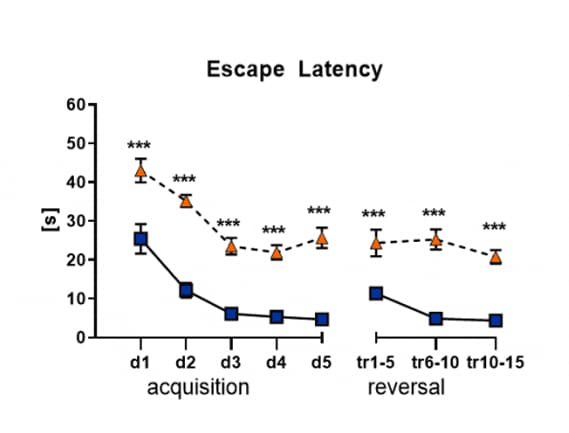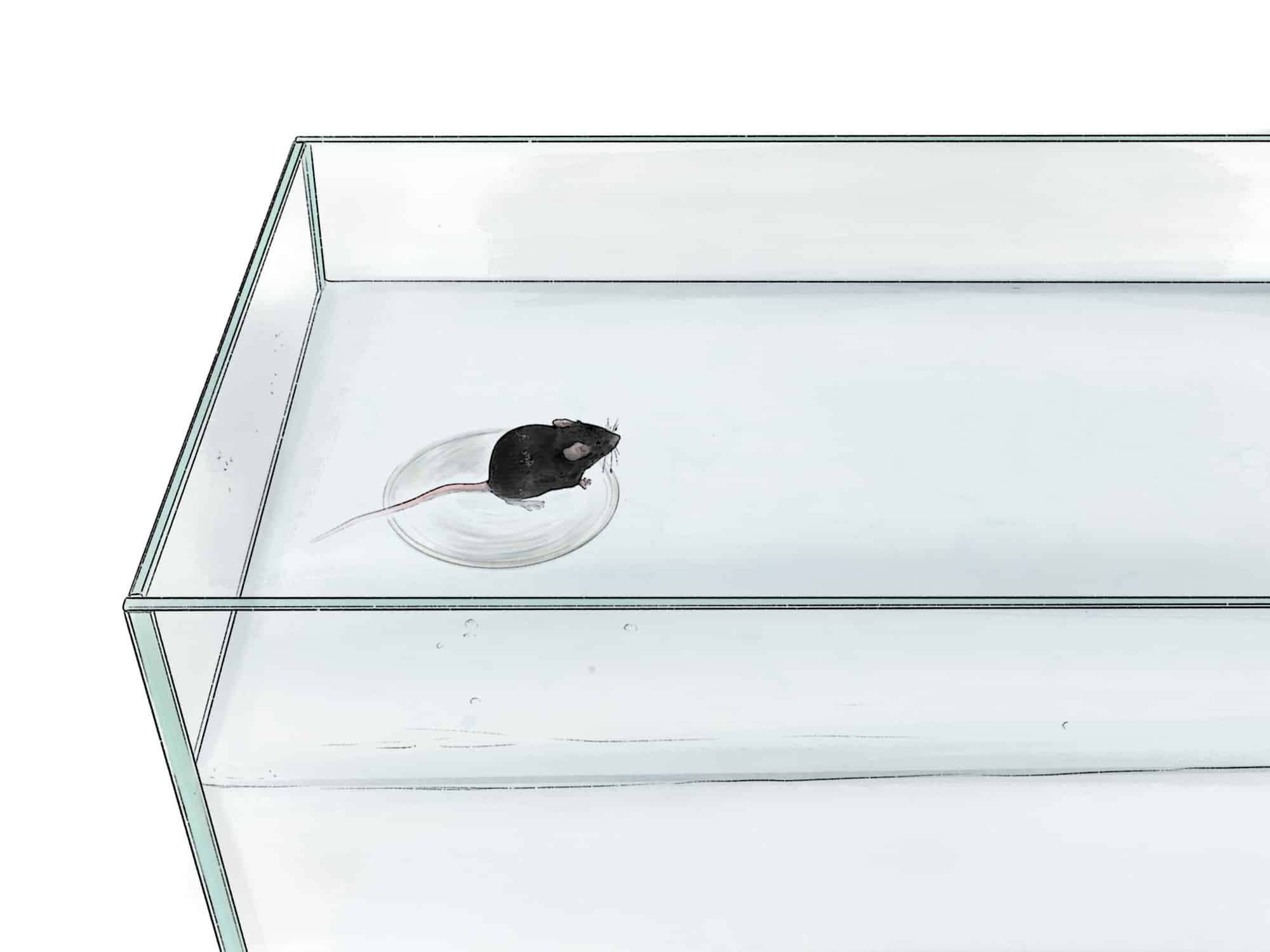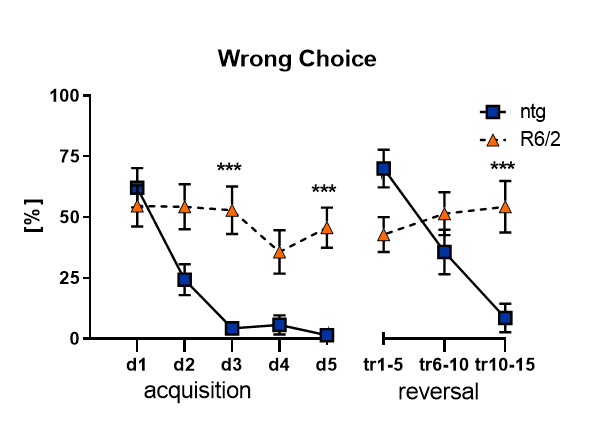The Two Choice Swim Test represents a visual discrimination task aiming at measuring both procedural and reversal learning abilities. A unique feature of this test is the possibility to test also modestly motor-impaired animals since the choice accuracy is not influenced by motor deficits.
The apparatus consists of a water filled corridor-like tank, that is illuminated at one end. A hidden platform is positioned either at the dark or the lit end of the tank, and the light serves as an environmental cue for the rodents. The mouse is always placed in the center of the tank. During the acquisition phase of the task, each animal performs several training trials by swimming towards or away from the light to find the platform. Each animal is given one minute to complete the task and is subjected to five training trials per day. The acquisition phase typically lasts for 4-5 days. Both the latency to reach the platform and the percentage of wrong choices are automatically calculated as relevant parameters of procedural learning. To test for reversal learning, the platform is switched towards the opposite end of the corridor, while the light source remains at the former position. Mice are given several trials to relearn the new position and, again, both the latency to reach the platform and the percentage of wrong choices is measured as an index of reversal learning.
The test is used to test for learning deficits in rodent models of Alzheimer’s disease, Frontotemporal dementia, Huntington disease and several mental disorders. Alternative tests evaluating spatial memory include the Morris water maze, Barnes maze and Y-maze test.


Figure 1. Two choice swim test of 12 week old R6/2 mice. Escape latency compared to non-transgenic mice. Mean ± SEM. n = 14 per group. Two-way ANOVA followed by Bonferroni’s post hoc test; **p<0.01.

Figure 2. Two choice swim test of 12 week old R6/2 mice. Number of wrong choices compared to non-transgenic mice. Mean ± SEM. n = 14 per group. Two-way ANOVA followed by Bonferroni’s post hoc test; **p<0.01.
